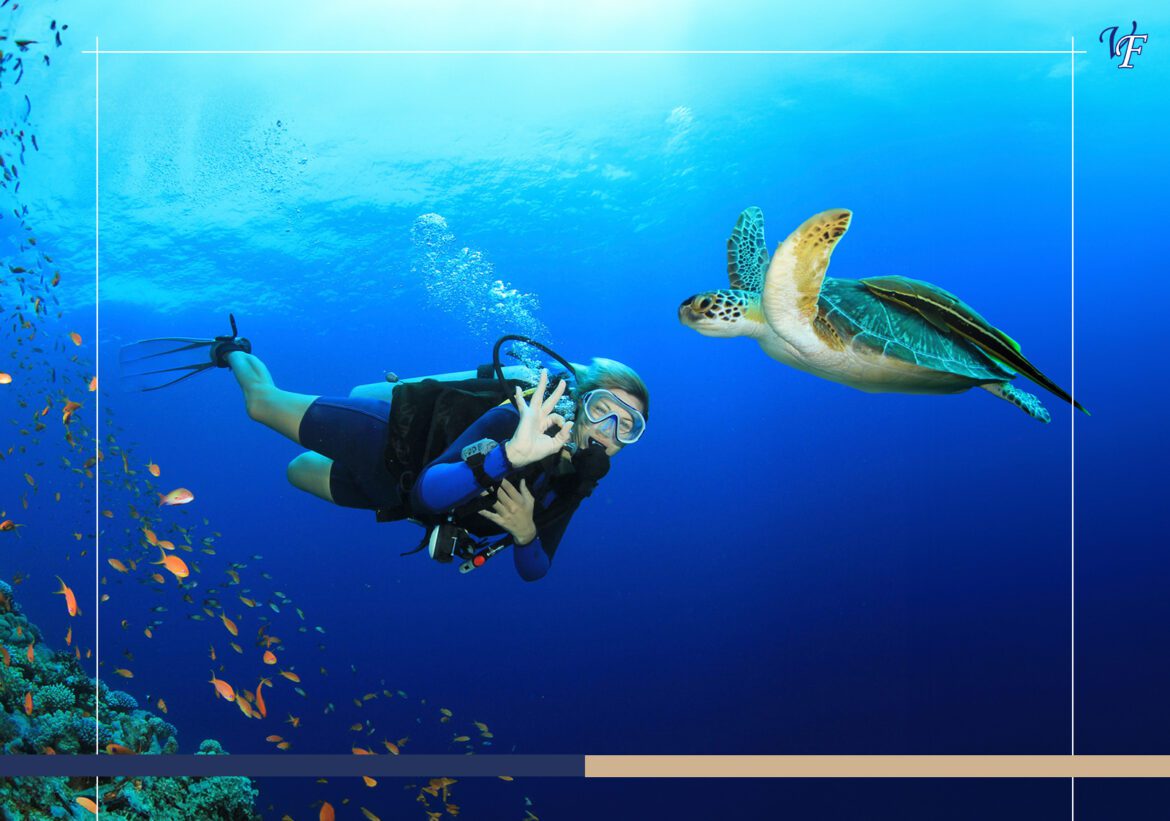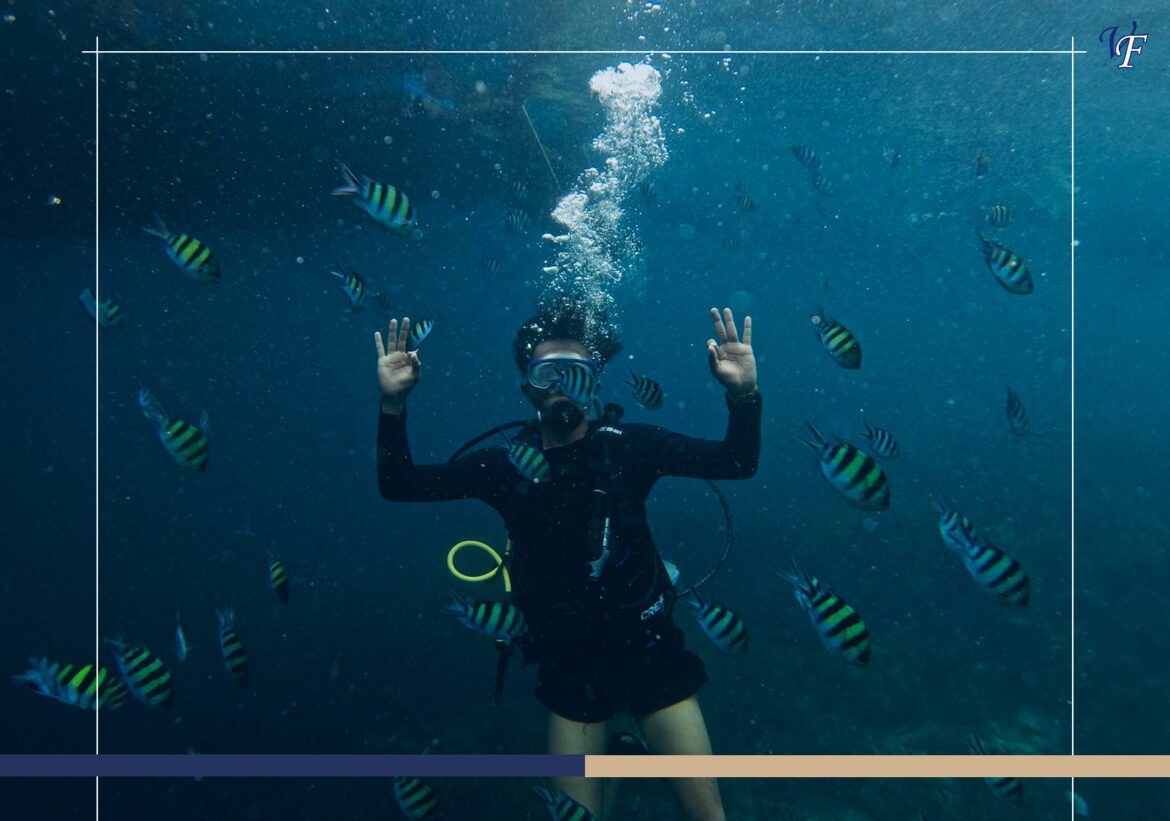The ocean is home to an astonishing array of life, showcasing biodiversity that rivals the richest rainforests on land.
Marine ecosystems are intricate and vital to our planet’s health, from tiny coral polyps to majestic blue whales. However, these precious environments are increasingly threatened by human activities. Pollution, overfishing, and careless tourism are just a few of the ways we risk the health of our oceans and their inhabitants.
This article aims to guide you on how to appreciate and enjoy marine life responsibly. By understanding and respecting the ocean, we can help ensure its diverse species and ecosystems thrive for generations.
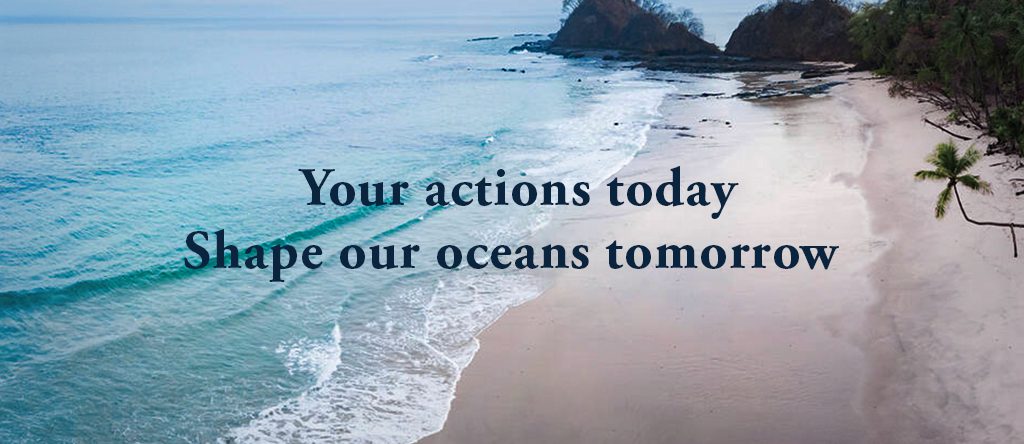
Common Threats to Marine Life
Various human activities constantly threaten the beauty and diversity of the oceans. These pressures not only jeopardize marine species and their habitats but also threaten the broader environmental balance.
Below, we explore some of the most significant threats to marine ecosystems, illustrating the need for immediate and sustained action.
Pollution
Our oceans are increasingly contaminated with plastics and harmful chemicals, disrupting marine habitats and endangering wildlife. Plastic waste is often mistaken for food by aquatic animals, which leads to fatal blockages or poisoning. Chemical pollutants from industrial runoff can also disrupt the reproductive systems of marine species and degrade overall water quality.
Overfishing
Unsustainable fishing practices deplete fish populations faster than they can replenish, leading to drastic declines in many species. This not only affects the balance of marine ecosystems but also the economic stability of communities relying on fishing industries.
Habitat Destruction
Coastal development often leads to the destruction of crucial habitats such as mangroves and coral reefs, which serve as breeding and feeding grounds for numerous marine species.
Similarly, bottom trawling—a fishing practice that drags heavy nets across the seafloor—destroys bottom habitats and indiscriminately kills a wide array of sea life.
Climate Change
The increasing temperatures of our oceans, coupled with acidification resulting from higher CO2 levels, pose severe threats to marine life. Warmer waters can lead to coral bleaching and disrupt migration patterns, while acidification weakens shell-forming species such as corals and shellfish.
Irresponsible Tourism
When tourist activities are not managed responsibly, they can severely impact local marine ecosystems. Touching reefs, feeding marine wildlife, or using harmful sunscreen can damage delicate coral and disturb natural behaviors in wildlife.
Guidelines for Responsible Marine Tourism
As travelers, our interactions with the environment can profoundly affect marine ecosystems. Adopting responsible tourism practices allows us to minimize these impacts and contribute to the conservation of these precious habitats.
Below are essential guidelines that every eco-conscious traveler should follow to ensure their adventures support marine health and sustainability.
- Not Disturbing Wildlife: Maintain a respectful distance from all aquatic animals. Avoid actions that could disturb animals, such as chasing, touching, or feeding them.
- Minimizing Plastic Use: Opt for reusable alternatives to single-use plastics, like water bottles, bags, and food containers. Ensure all trash is disposed of properly, and participate in local beach cleanups.
- Respecting Protected Zones: Adhere to all guidelines and regulations in protected areas to support conservation efforts. These zones are vital for the recovery and sustainability of ecosystems.
- Reducing Carbon Footprint: Choose transportation methods with lower environmental impacts, such as carpooling or using boats that employ eco-friendly technologies.
- Supporting Sustainable Practices: Engage in activities that support the sustainability of the environment, like patronizing businesses that use renewable energy sources or sustainable building materials.
- Educating Yourself and Others: Take the time to learn about the local environment and its species and share this knowledge with fellow travelers to spread awareness.
- Participating in Conservation Activities: Whenever possible, participate in or donate to conservation activities and programs offered by local organizations or research groups.
- Using Environmentally Friendly Sunscreen: Choose sunscreens free from harmful chemicals that can damage coral reefs and marine life, opting for products labeled as biodegradable or reef-safe.
- Observing Quiet Enjoyment: Be mindful of noise levels when near water, as sound travels faster underwater and can disrupt marine life, particularly mammals like dolphins and whales.
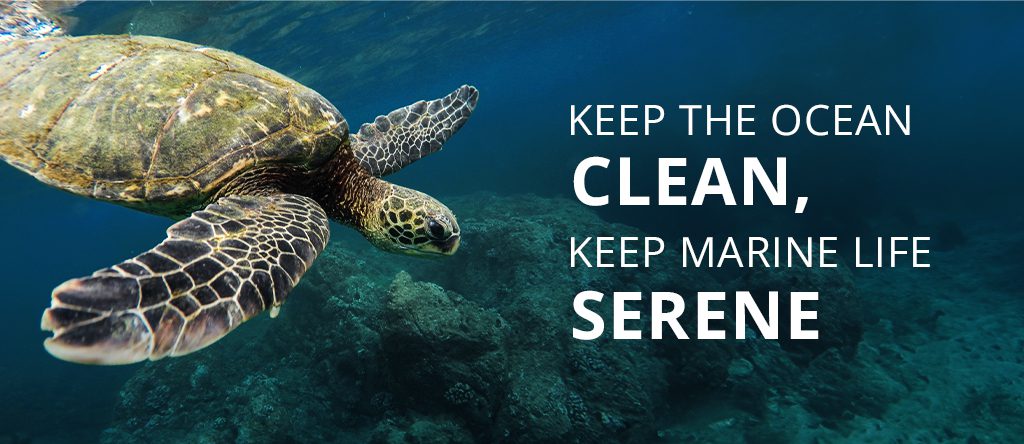
Ways to Enjoy Marine Life Without Causing Harm
Exploring the ocean’s beauty can be a breathtaking experience, but it’s vital to do so without harming its inhabitants or ecosystems. By adopting responsible behaviors and making mindful choices, we can protect marine life while still enjoying its wonders.
Here are practical ways to engage with marine environments sustainably and ethically:
Snorkeling
When snorkeling, keeping a safe distance from coral reefs is essential to avoid damaging these delicate creatures. Move slowly and carefully to prevent stirring up sediment that can smother corals.
Diving
Choose to dive with eco-certified companies that are committed to protecting marine environments. These companies adhere to best practices that minimize environmental impacts and support conservation efforts.
Responsible Marine Life Watching
Observing wildlife in Costa Rica responsibly plays a pivotal role in maintaining equilibrium. Enjoy watching whales, dolphins, and other marine life without intruding on their natural behaviors. Maintain a respectful distance and avoid activities that can stress or harm the animals, such as chasing them or feeding them.
Educational Tours
Engage in tours that provide valuable insights into local marine ecosystems. These tours are often led by knowledgeable guides who can educate you on the importance of conservation and how to protect marine biodiversity.
Supporting Local Conservation Efforts
Support businesses and services that actively contribute to local conservation initiatives. This could include tour operators, accommodations, and other services that invest in environmental sustainability.
Beach Cleanups
Participate in or organize local beach cleanup events. These not only help remove debris from marine habitats but also raise community awareness about the impact of pollution on the ocean.
Sustainable Seafood Choices
Choose seafood certified as sustainable, which means it’s sourced in ways that do not deplete natural populations and have minimal impact on the marine environment.
Coral Reef Protection
Educate yourself about coral reefs and support initiatives for their protection and restoration. Avoid buying coral products and participate in reef conservation programs.
Use of Eco-Friendly Sunscreen
Use sunscreens free from oxybenzone and octinoxate, chemicals harmful to marine life, particularly corals. Opt for mineral-based options that protect without ecological damage.
Promotion of Conservation Awareness
Use your voice and social media platforms to promote marine conservation. Share information, experiences, and ways others can contribute to protecting the aquatic environment.
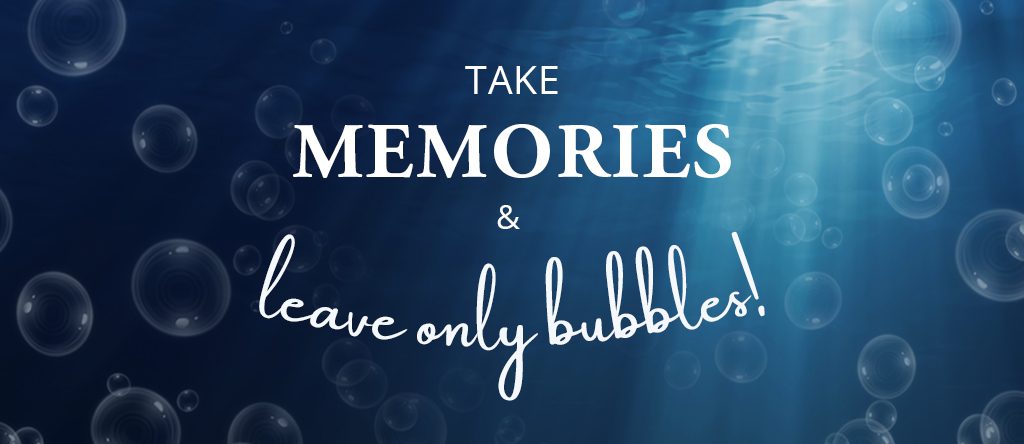
Conclusion
Throughout this blog, we’ve explored the importance of marine ecosystems and the diversity they harbor. We’ve also highlighted the significant threats these environments face—pollution, overfishing, habitat destruction, climate change, and irresponsible tourism.
However, by embracing responsible practices such as choosing eco-friendly tourism, supporting conservation efforts, and minimizing our environmental impact, we can help protect these precious marine resources.
As you consider your next vacation or oceanic adventure, remember that the choices you make can contribute to the health and longevity of marine life.
Consider staying in eco-conscious luxury villas in Costa Rica, where you can enjoy the beauty of the ocean while ensuring your visit supports sustainable practices that protect and preserve the environment.
By adopting the responsible behaviors discussed, you not only enhance your experience but also contribute to a legacy of conservation that will allow future generations to enjoy our world’s oceans just as we have.


